|
2020 has been a challenging and interesting year. Prior to COVID-19 things were progressing and there was a level of excitement for the year and the ability to bring clarity to challenges in our personal and professional lives. Oh, what a difference a pandemic can make.
Our business model has been to work with organizations that work with young people to enhance and enrich their after school and/or summer camp experiences. We’ve been extremely fortunate and are grateful to the organizations (shared on our website)that we have worked with over the years We were able to help their clients and donors reach our shared goals. COVID-19 upended all of our worlds and forced changes to how we do business - with each other and our clients. When COVID-19 closed schools, we were closed too. We miss the smiling and sometimes frustrated faces. Coding isn’t hard, but it’s not easy, it takes effort to get good and even then there’s always more to learn. Over the years, we have enjoyed introducing more and more young people to coding as a skill that can be developed and one that opens doors not visible today. This summer we offered our first virtual learning sessions for young people that gave parents a break while their child had fun creating animations and games. When schools shut down, we were able to refocus on our core principles of Access, Inclusion, and Trust. Access provides the opportunity to learn coding to as many as possible regardless of zip code. Inclusion welcomes everyone regardless of social-ethnic-economic background. Trust builds a relationship with all of those we serve by honoring our commitments and thinking of them first. These principles allow us to look to the future with a renewed commitment to continue to move the needle. In the coming weeks, you will hear about CODE 202(X), our new program that will continue to support organizations with virtual enrichment options. We’re also launching Parent Time, an out-of-school Enrichment program designed to give caregivers an hour back in their day. Look for us to continue to enhance our service offering with even more collaborations. Be the first to know about our new engaging and fun learning options for your young person by signing up here to get detailed information as it becomes available. William H. Teasley, President, HGEI 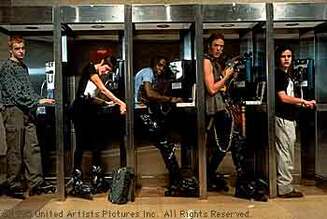 A few years ago, the concept for Nerd Ninjaz came to me as I was re-watching the 1995 movie Hackers (starring a very young Angelina Jolie and Johnny Lee Miller). It was a story about young people using technology to explore their world, create (which included crashing 1,500 Wall Street Computers in the early 1990s for fun), and in the end, saving the day by preventing another hacker from stealing millions of dollars via a ‘worm’ program. The 1995 movie didn’t do so well at the box office at the time, but it was truly prophetic. The general public had no idea that this quirky geek filled movie explored things in 1995 that we confront today. This past Sunday, 60 Minutes did a story on ransomware and as early as 2009, the Conficker worm was stealing our personal information (and a lot of our money). What stood out to me in Hackers was the concept of the ‘white hat’ (ethical) hackers. Hackers, doing positive hacking to help companies protect their data and actually hunting black hats (malicious) hackers. And today they get paid, A LOT, to hack! Every child can learn how to code, even as coding itself is evolving (according to my student Shyne “Isn’t AI supposed to do that for us?”). Many of my students like calling themselves hackers as a status symbol. It means they have some coding skills. On a deeper level what they learn is how to think in a way that awakens their creativity, their ability to solve problems (both individually and collaboratively), and another way to communicate with others outside their circles. Whether for good or for ill, new careers and opportunities are out there! Ten years ago, who would have thought that a hacker, once a term for a criminal, would come out of the basement to be in the light, with some being referred to as heroes. There are new careers now available in that light as a ‘white hat’ hacker. We share these careers with our young people so that they know that there is a lot of good they can do hacking and using the technology that they use every day. We’re not just teaching young people to code, we're grooming more ‘white hats’. Are you ready to join the 'white hats'? William Teasley, President, Founder, and Nerd Ninja Sensei, HGEI 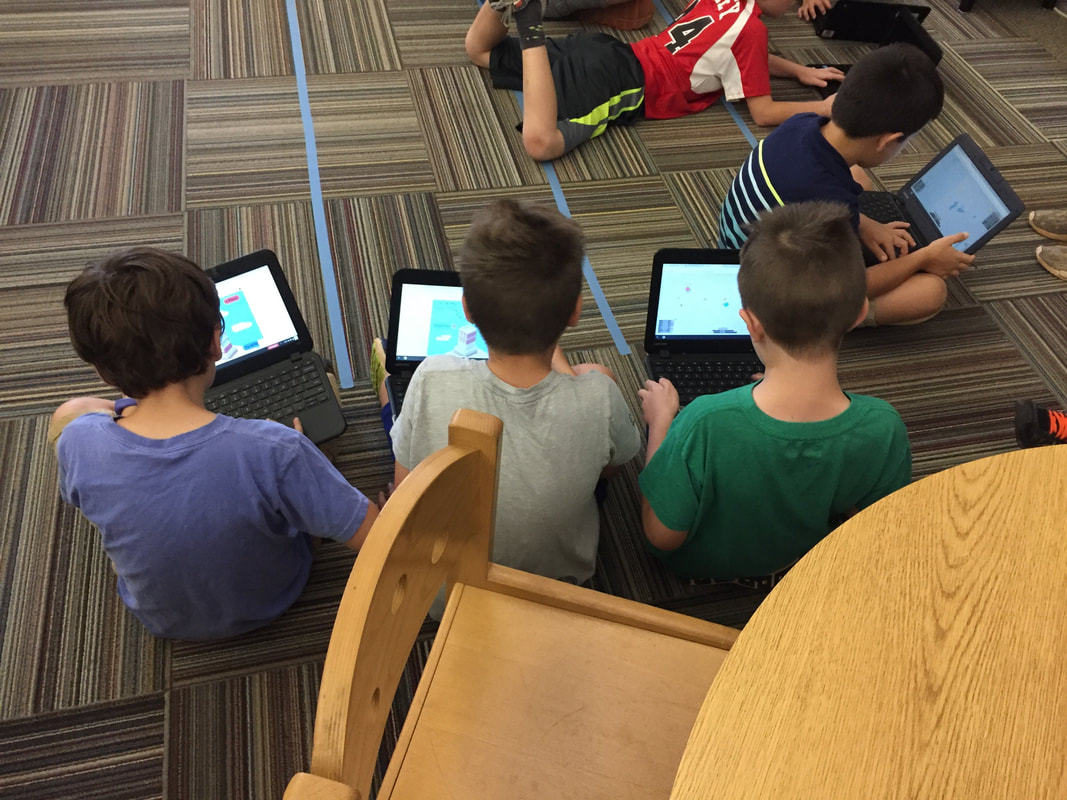 We did something different this semester at Atlanta Neighborhood Charter School (ANCS) elementary campus - we introduced code.org Computer Science Fundamentals We had been using Scratch’s sandbox approach to coding. Creativity and learning can go hand in hand, and Scratch allowed them to explore boundaries of what could be done while creating a game or animation. One project had everyone animating their names and no two name animations were the same. Code.org courses are similar to classroom learning, structured with progression and lines of code monitoring. This provided\s the opportunity to more deeply explore computer coding concepts like loops, events, and conditionals. Everyone completed their course 2 weeks before the end of the session which allowed us to dive back into Scratch. In all, 21,444 lines of code were generated by 29 ANCS Nerd Ninjas this semester. Several generated over 1,000 lines of code, with sushidog9 garnering top honors with over 3,000 lines of code. One young man whose username is burp49 (I let them select their own, another exercise in creativity) said “I get it now, I understand the commands in Scratch better so I can make a better game.” The connections allowed everyone to have a better experience in both platforms. My journey began here with the wonderful family, students, and staff at ANCS. What I learned has been applied across Atlanta to engage young more people in computer coding and has challenged their Code Coaches to adapt, improve, and better serve our Nerd Ninjaz. Everyone can code, regardless of zip code. Combine that with a strong learning community, we can help our young people to be Future Ready with skills, knowledge and confidence. Who wants Future Ready young people in your lives or in your organizations? Call or email to start the Future Ready conversation. Sincerely, William H. Teasley, III, Nerd Ninja Sensei Higher Ground Education, Inc. [email protected] 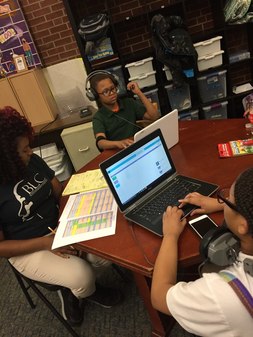 In April, the East Atlanta Kids Club (EAKC) participants completed a code.org Computer Science Fundamentals course. It was great to see some kids gravitate to coding, especially since most had not been exposed to coding before Nerd Ninjaz. They learned computer science fundamental concepts such as algorithms, loops, events, etc. which gave the participants a platform to launch from. There will be designers and programmers out of this group because they now know they can code and they will only get better in the future. They wrote a combined 7,400 lines of code in the 7 weeks we have been working together! I am so very proud of the young men and women of EAKC that persisted, collaborated, laughed, and through challenges. Hundreds of fist bumps, pats on the back, not so gentle nudges to complete a task, reminders that they can do it, check-ins, and smiles in the face of frustration made this journey worth it. I reminded them recently what I said when we started in January “Learning to code is not hard, but I never said it would be easy.”. They laughed with many reminding me of the walls we went around, broke through, or climbed over. They all now say “I can code”! Let’s keep the momentum going to have 10,000 of Atlanta’s young people say “I Can Code!”. William Teasley, Nerd Ninja Sensei, HGEI 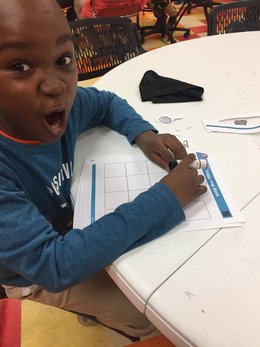 What do Nerd Ninjaz do when the computers are or internet is not working? We unplug. I incorporate projects to get young people off the computers and interacting with each other to learn a specific computer science concept. Sometimes planned, sometimes not (like when the computers aren’t working at Grove Park Recreation Center) we get up and get interactive. Our young people are placed into small teams to on complete a task teaches coding concepts in the physical world. The Grove Park Dojo had a ball playing My Robot. Young people (5th graders) gave commands (programmer) to a team member (2nd graders) (robot) in order to navigate the room to pick up a book from a table and return to their original spot. We learned that the ‘programmer’ giving the commands (code) was creating an algorithm (series of commands) to complete the task. Every team did an excellent job, successfully completed the task, and had fun doing My. Robot. Learning computer science concepts and coding can be daunting. However, we leverage the playful side of learning so that our young people making significant strides in code learning. We are transitioning minds from “I can’t”, I don’t know”, “This is hard” to “I CAN”. Every young person should say I can in the face of challenges or pursuing an opportunity, plugged in or unplugged. If they do, things will change for the better for them and the rest of us. Connect with me to explore how you can be a part of the i.can movement. William Teasley, Nerd Ninja Sensei, Higher Ground Education, Inc. 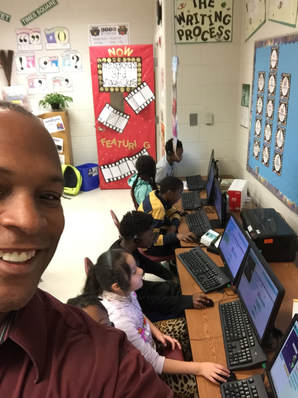 Last week, I realized something that I hadn’t noticed before. I worked with 100 young people in after school programs in just one week! For ten (10) weeks I will be with young people at The Study Hall, Atlanta Neighborhood Charter School, Centers of Hope (Rosel Fann & Grove Park), and East Atlanta Kids Club. Nerd Ninjaz has grown along with the young people I work with over the years. The Dojos are being owned by the young people. We now have the 2-3s, Hacker Masters, and others being named by them. I’m proud of the ownership they are showing as they learn computer science concepts like algorithms, debugging, loops, and digital citizenship. We laugh, joke, get loud, and get frustrated together while I’m scooting around in my chair with wheels. 21st century learning is different, learning that is fun and social. Critical thinking, problem solving, collaboration, and creativity are encouraged. This is part of a greater movement, #YesWeCode, #CSForAll, and others, to prepare young people for future careers and as 21st century leaders. Young people that will have an impact on their communities leveraging today’s technology. We are initially calling our local movement i.can Atlanta and any organization that is working with young people can connect with. The main requirement is that you offer your young people a computer technology related programming in 2018/19. Let’s have more of Atlanta’s young people say “i.can”. Join the movement. Reach out to me and let’s start the conversation on how we can drive a difference support the idea of i.can Atlanta. William Teasley, Nerd Ninja Sensei Twitter: @William HGEI Instagram: @NerdNinjaSensei 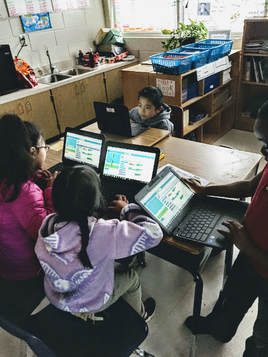 This is the beginning of the 3rd year of my journey working with young people and adults to teach them computer science concepts and coding. It has been exciting to learn with them since I didn’t learn computer science and coding back in the day. My earliest experience with coding was in 1997 playing around with HTML and CSS just to have greater control over websites I was charged with managing. During the Great Recession, many were left scrambling to find a away to replace livelihoods lost. Computer programming was a black art to many, best left to the stereotypical computer geeks in basements and large bland office spaces. As the curtain was pulled back, those spaces were revealed to be full of life, playful, and engaging. Those spaces stimulate innovation and thinking that demanded our attention. Was computer programming something we all can learn to do? Could we learn programming concepts, even before college? Yes and Yes! In 2013, I was reintroduced to coding when several adult friends were shifting careers to get into this “coding thing”. These men and women impressed me with their ability to learn an entire different way of thinking from their traditional careers. We take for granted our innate knowledge of how to do things. Computer programming is the opposite. Computers run based on an explicit series of instructions that tell it what, when, and how to do a task, for every task that it is designed to complete. This year will bring some exciting alliances, challenges, changes, and growth. That includes greater feedback on youth performance to our clients while exploring fresh ways to reach more young people. The goal is 10,000 by 2021 and we (collectively) have already touched at least 1,800. I look forward to having you all join me on this journey. If you have an after school, weekend, or summer program that serves youth, please contact me below to explore how we can work together to get your youth started in computer science and coding. If you have a program that you are implementing, please share information with us so they can be a part of the 10,000. William Teasley, Nerd NInja Sensei [email protected] Twitter: @WilliamHGEI, Instagram: @nerdninjasensei Computer Science Week, the first full week of December, is an exciting time of the year. Why? Because I get to expose more and more young people to computer coding and computer science concepts through the Hour of Code. And every year, I’m re-energized by seeing their eyes light up after they animate their name or complete a lesson in code.org.
For #HourOfCode2017 we introduced nearly 300 young people in the Atlanta neighborhoods of Chosewood Park and Peoplestown. Volunteers worked with students at Frederick Wilson Benteen Elementary School (Benteen ES) and Barack & Michelle Obama Academy (BaMOA) in completing their coding projects. Students in 3rd and 4th grades had to construct lines of code using blocks using the ‘Play Ball’ lesson from code.org. 5th Graders set up their own Scratch accounts and animated their names. After the last session on Friday, I wished we had more than just an hour a year to explore this new skill with these bright and inquisitive minds. The #HourOfCode is an important part of what we do to give back and expand the reach of coding to young people in some of our most challenged communities. Coding is a skill that if nurtured could last these young people well into adulthood and open doors to new opportunities. This Hour Of Code I had some great hands and minds helping me. Mrs. Annette Richardson, my mother and a retired Dekalb County Schools administrator; Mr. Kenneth Mason, State of Georgia Board of Education District 5 Representative; Ms. Lisa Fey, Speaker and retired Coca-Cola sales and marketing executive; Ms. Andaiye Reeves, Atlanta-Fulton County Public Library; and Mr. Rick Laupus, Peoplestown Community Advocate were an integral part of the learning and fun. The school staff, especially Ms. Lorraine Foushee at BaMOA and Ms. Aiesha Khan and Benteen ES, really rocked it to a new level. I’m so proud we’ve been at BaMOA since 2014 and Benteen since 2016. I can’t thank our volunteers and the staff at the schools enough for making this one better than the year before. The primary lesson I learned is that more can be done but no singular organization (or individual for that matter) can do it alone. #HourofCode is a step on a long and interesting journey. So who’s up for bringing coding to your school, after school program, a summer program, a library, church, or any location near you? Contact me to start the conversation and begin building alliances to teach 10,000 young people how to code. We can make this happen for Metro Atlanta’s young people. William Teasley, Nerd Ninja Sensei As we kick off Computer Science week, I am reminded about the importance of young people, especially from challenged backgrounds, learning computer science concepts. Computer coding, design thinking, and 21st century skills can dramatically influence their future trajectories.
Everyone can code, even though everyone is not a coder, it is a skill that old and young can master. You don’t have to be a coder to code - coding is a skill that the old and young can master. The keyboard is accessible to everyone and if you can leverage those skills - you can have impact far beyond yourself. I use games, animations, and modding as a playground approach to computer science and 21st century concepts, enabling young people to learn without a formal curriculum or structure. Project based learning is a tool that works well in after-school programs where we can introduce concepts in a fun and less high stakes environment. I often have to reassure after school program directors that they are indeed learning when they can hear them laughing, moving around, sitting on the floor (or under a table), and talking during our sessions. The approach is messy and at times noisy. Learning should be engaging, fun, constant, and occurs, more often than not, in real world application of concepts. We start with “You Can…” and go from there. This year Nerd Ninjaz will be returning for the 4th year of Hour of Code to Barack and Michelle Obama Academy and the 2nd year at Benteen Elementary School. We’ve logged over 1,800 hours of 2nd-4th graders learning computer science concepts and 5th graders creating a game/animation during their Hour of Code. This year we will add 500 more hours to that number. If you want to help, please feel free to reach out to William Teasley (the Nerd Ninja Sensei) for more information on how to get involved. Stay tuned. We’ll be sharing video, pics, and a blog post from an educator next week! William Teasley Nerd Ninja Sensei [email protected] As children create with Scratch, they learn to think creatively, work collaboratively, and reason systematically.” MIT Media Laboratory, Lifelong Kindergarten group
One of the greatest pleasures in what I do is working with young people to create games and animations in Scratch. The Nerd Ninjaz, some as young a 5, have created some incredible (yes I am biased). The project based approach allows young people to move at a speed that is comfortable for them, while using project completion as a success measure instead of how quickly they can grasp a single concept. I challenge them frequently to advance their skills and develop their own game and animations based on what they learn. Coaching them through challenges builds resilience and searching for answers when I don’t have them creates collaborative learning. Often I’m asked, “What do your Nerd Ninjaz learn or get from the Dojo and from Scratch”. These are just a few of the benefits:
Most Ninjaz will not become coders (professional programmers). What Ninjaz gain is increased confidence in their ability to learn, improve their ability to express their ideas creatively, to think more logically. By 2021, I want to see 10,000 young people from Metro Atlanta with these skills that will have a profound impact on their future and the future of Atlanta. Efforts like Power My Learning's App Challenge and others are helping feed the pipeline. Let's get them there together. William Teasley Nerd Ninja Sensei T: @WilliamHGEI |
AuthorSA blog for those working to refine the college access pipeline, create more opportunities to nurture future change agents, and mitigate the gaps. Archives
September 2020
Categories |

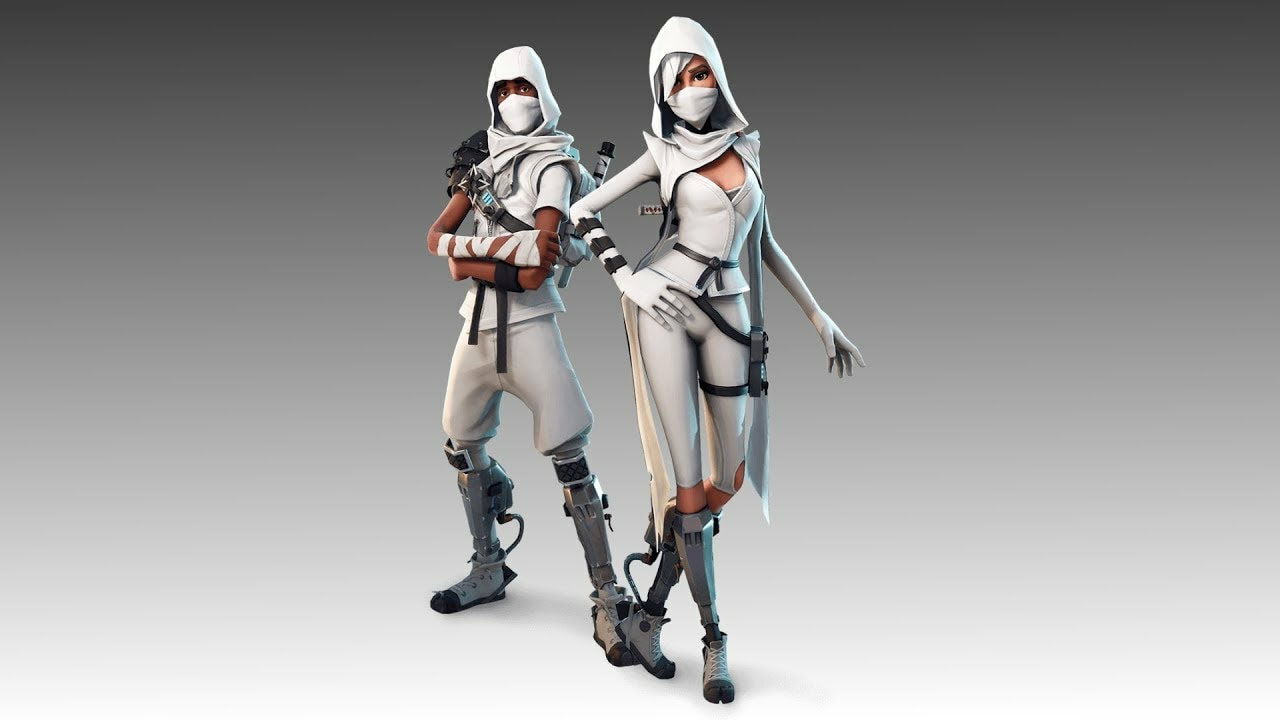
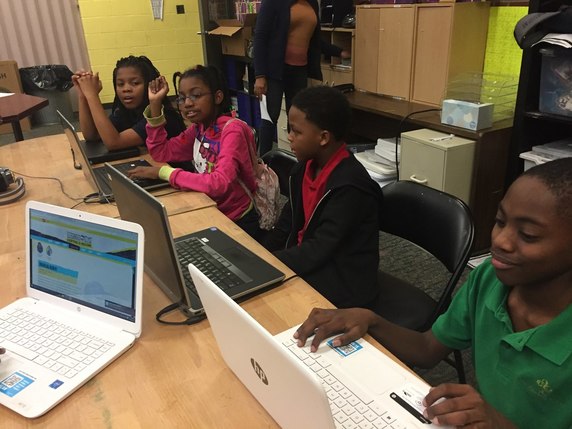
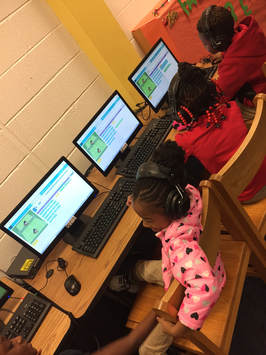
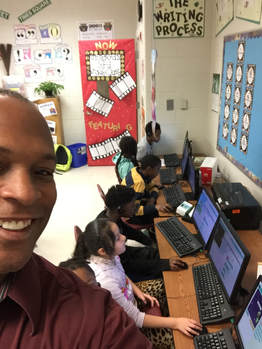
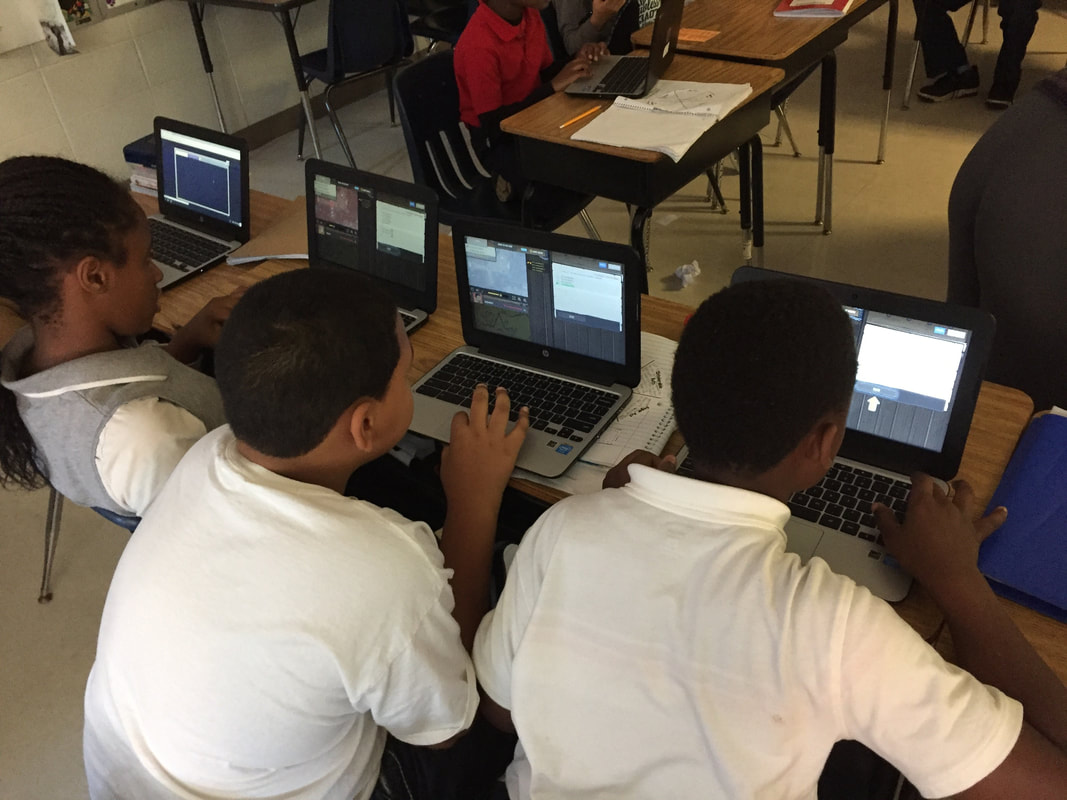
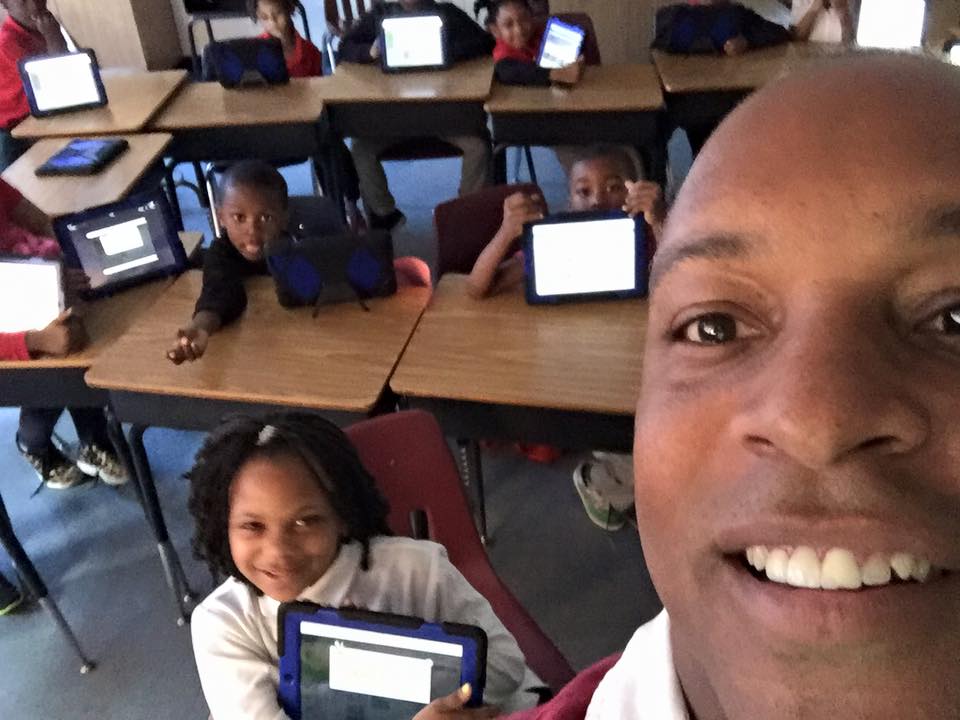
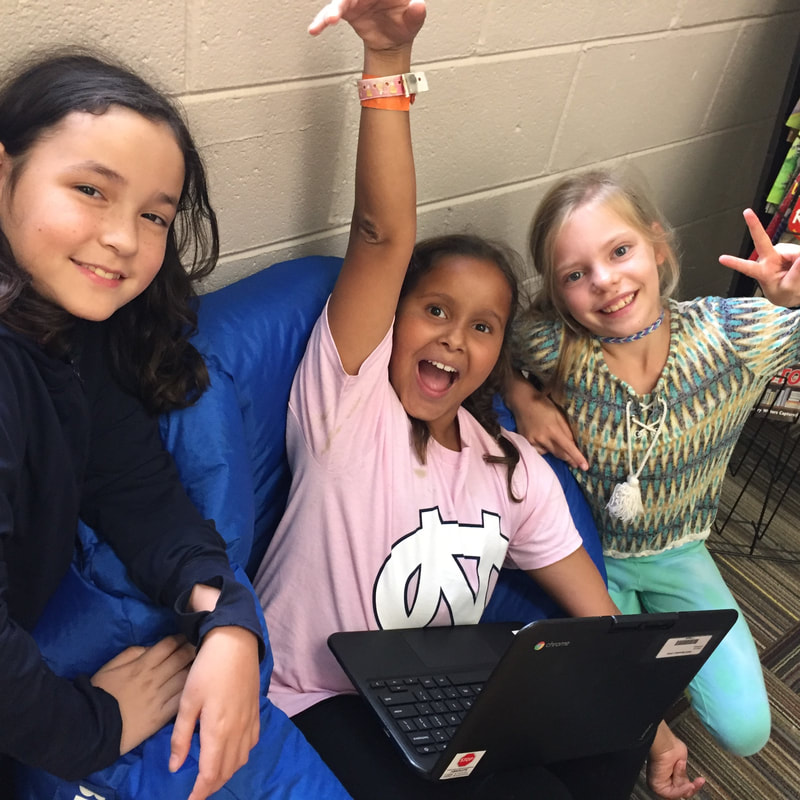
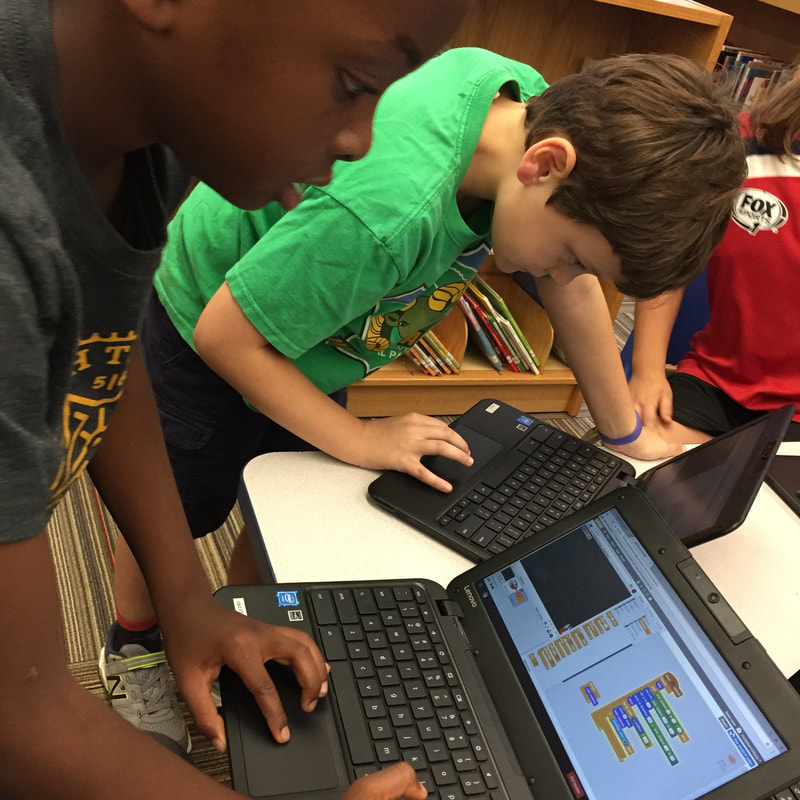
 RSS Feed
RSS Feed
